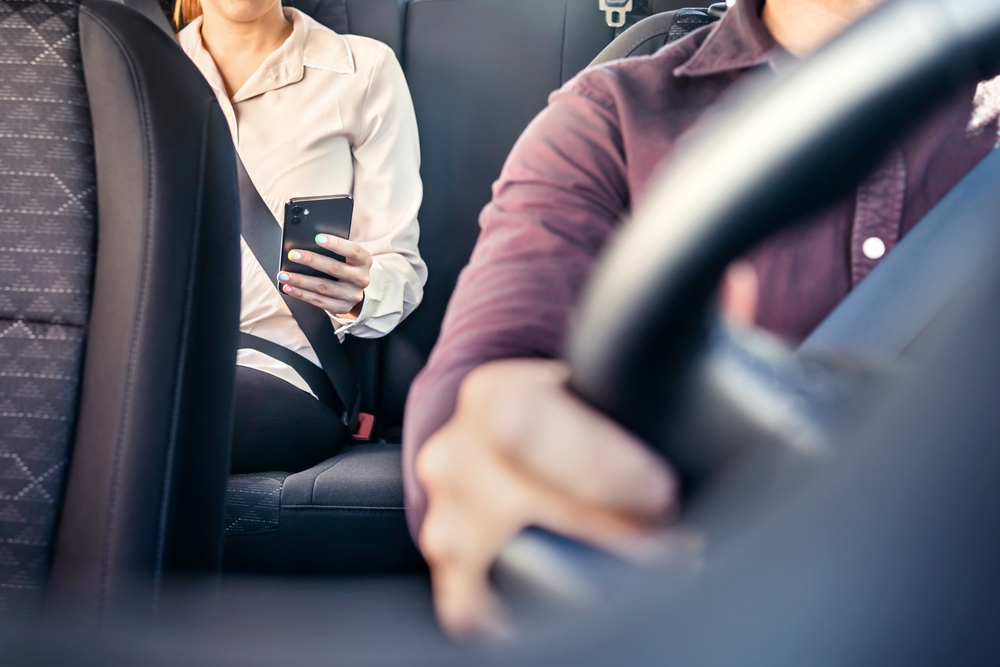A Maryland woman has filed a rideshare assault lawsuit against Lyft in the California Superior Court, alleging that the company knowingly assigned the task of driving vulnerable passengers, often late at night, to drivers who were not adequately screened or vetted. According to this new complaint and a growing number of similar claims, this critical oversight has enabled a string of Lyft driver sexual harassments and assaults to occur. As the number of Lyft sexual assault lawsuits continues to climb, victims and their loved ones are demanding accountability and justice from the company that has long touted itself as a safe and reliable transportation option.
The Shocking Statistics Behind Lyft’s Sexual Assault Crisis
Lyft, like Uber, has found itself embroiled in a crisis of epic proportions. In its own Community Safety Report released in October 2021, the company revealed that it had received a staggering 4,158 reports of sexual assault from 2017 to 2019 – a figure that underscores the scope and gravity of this growing problem. These incidents ranged in severity from non-consensual touching to rape. Sadly, these troubling statistics likely represent only the tip of the iceberg, as the Department of Justice reports that more than two-thirds of sexual assaults go unreported.
Holding Rideshare Companies Accountable for Sexual Assaults
In this latest rideshare assault lawsuit, a Maryland woman, identified in the complaint as Jane Doe PWV 002, requested a ride through the Lyft app in Baltimore in November 2023. She noticed during the trip that her driver was taking an unusually long route to her final destination. Fifteen minutes into the ride, the driver reportedly stopped the vehicle on the side of the road and locked the plaintiff in the back seat. The driver then went to the side of the road and “exposed himself through masturbation” before getting back in the car and telling the plaintiff that it was okay and to laugh.
This disturbing incident, the lawsuit argues, is not an isolated case, but rather a reflection of a broader “sexual predator crisis” within Lyft’s ranks. “By failing to take reasonable steps to confront the problem of multiple rapes and sexual assaults of LYFT passengers by LYFT drivers, LYFT has acted in conscious disregard of the safety of its passengers, including Plaintiff, and has breached its duty of reasonable care and has breached the implied and express covenants arising from its contract with its passengers,” the complaint states.
A Growing Number of Rideshare Assault Lawsuits Against Lyft, Uber
This Maryland Lyft lawsuit comes amidst a growing wave of similar claims against another major rideshare company, Uber. In fact, Uber has faced the lion’s share of these sexual assault complaints, with more than 200 sexual assault lawsuits filed against the company over the past year alone. This has led to the consolidation of Uber sexual assault claims into a multidistrict litigation (MDL) in the Northern District of California, under the guidance of U.S. District Judge Charles R. Breyer. The consolidation of these Uber sexual assault lawsuits is a significant development, as it allows victims from across the country to join forces and hold Uber accountable for its alleged failures to protect passengers.
The Shortcomings of Rideshare Background Checks
At the heart of these rideshare assault lawsuits lies a fundamental issue: the inadequacy of the background checks conducted by Lyft and Uber to screen their drivers. While both companies claim to vet their drivers thoroughly, the reality is that these checks often fall short of identifying individuals with a propensity for violence or a history of sexual offenses.
The background checks employed by Lyft and Uber typically focus on identifying sex offenses, violent crimes, and driving-related infractions from the past seven years. However, this approach fails to account for individuals who may have evaded detection or committed crimes for which they were never charged or convicted. As a result, these companies have unwittingly welcomed predators into their ranks, putting countless passengers at risk.
Demanding Accountability and Comprehensive Safety Reforms
As the number of Lyft and Uber sexual assault lawsuits continues to mount, it is clear that the companies must take decisive action to address this crisis head-on. Survivors of rideshare assault and their advocates are calling for sweeping reforms, including:
- Comprehensive Background Checks: Lyft and Uber must implement rigorous background checks that go beyond the current seven-year timeframe and delve deeper into an applicant’s history to identify any potential red flags.
- Improved Driver Monitoring: The companies should establish robust monitoring systems to quickly identify and remove drivers who exhibit concerning behavior or are the subject of passenger complaints.
- Enhanced Safety Features: They must invest in the development and implementation of advanced safety features within their apps, such as panic buttons, automatic trip tracking, and the ability for passengers to easily report incidents.
- Transparent Reporting: Lyft should follow Uber’s lead and regularly publish comprehensive safety reports, providing the public with a clear understanding of the scale and nature of the sexual assault problem within its platform.
- Victim Support and Advocacy: The companies must prioritize the well-being of their passengers, offering comprehensive support services and resources for victims of sexual assault, and actively collaborating with advocacy groups to drive meaningful change.
Only by implementing robust safety measures to protect passengers from harassment, assaults, and other traumatic incidents can Lyft and Uber regain the confidence of their customers and ensure the safety of all who entrust their transportation needs to the rideshare companies.
Rideshare Assault Lawsuit Information
Criminal Victimization, 2020, Department of Justice
In re: Uber Technologies, Passenger Sexual Assault Litigation (MDL No. 3084), U.S. District Court for the Northern District of California

